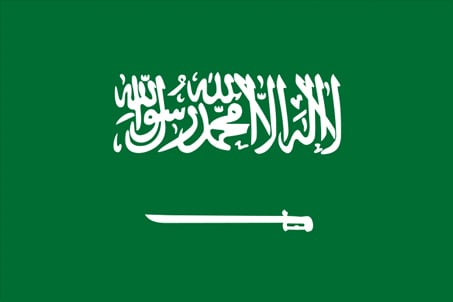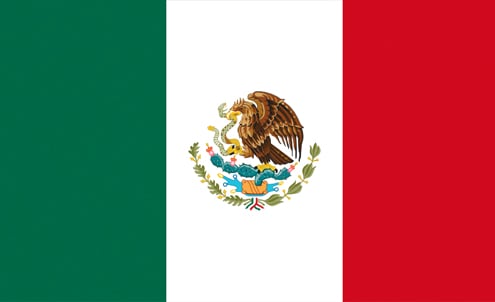Anti-Money Laundering and Combating the Financing of Terrorism (AML/CFT)
Effective anti-money laundering and combating the financing of terrorism (AML/CFT) policies and measures are key to the integrity and stability of the international financial system and member countries’ economies. Money laundering (ML) and related underlying crimes (the so-called “predicate offenses” or “predicate crimes”), as well as terrorist financing (TF) and the financing of the proliferation of weapons of mass destruction (WMD) or proliferation financing (PF) are crimes with economic effects—they can threaten the integrity and stability of a country’s financial sector and a country’s external stability more generally. They can result in destabilizing “hot money” resulting from inflows and outflows, as well as in banking crises, ineffective revenue collection, broader governance weaknesses, reputational risks for international financial centers, and loss of correspondent banking relationships (CBRs). In an increasingly interconnected world, the harm done by these crimes is global, affecting the integrity and stability of the international financial system. AML/CFT policies and measures are designed to prevent and combat these crimes and are essential to protect the integrity and stability of financial markets and the global financial system.
Over the past 20 years, the Fund has helped shape AML/CFT policies globally, and within its members’ national frameworks. Financial integrity issues are covered (as relevant) in all of the Fund’s functions: surveillance, lending, and capacity development. Staff gives policy advice on macro-critical AML/CFT issues in in Article IV consultations, covers AML/CFT issues relevant to the financial sector’s soundness and stability as part of the Financial Sector Assessment Programs (FSAPs), and inputs into the design and implementation of financial integrity-related measures in Fund-supported programs. The Fund also has an extensive capacity development program on AML/CFT and delivers bilateral, regional, and thematic technical assistance to the membership. Further, the Fund also actively contributes to the global AML/CFT architecture, through participation in standard setting and assessment of countries against the international AML/CFT standards, coordination in CD delivery, and collaborations on policy dialogue and analytical work. The IMF’s work on AML/CFT is guided by its AML/CFT strategy which is reviewed by IMF’s Executive Board on a five- year policy review cycle. The 2023 Review of the AML/CFT Strategy was endorsed by the Executive Board of the IMF in November 2023.
NEW | Targeted Transparency: Sectoral Approach to Beneficial Ownership in Procurement and Real Estate
This paper explores how a sectoral approach to beneficial ownership transparency can help close critical gaps in high-risk sectors—such as procurement and real estate—where vulnerabilities to money laundering, fraud, and illicit financial flows are most acute. Drawing on lessons from the COVID-19 pandemic and recent international reforms, the authors highlight how tailored transparency measures can strengthen oversight, accountability making crime less profitable, even in resource-constrained environments.
The Impact of Financial Integrity Failures on Financial Stability
This paper explores the impact of money laundering and related predicate crimes on banking sector stability. It identifies potential short- and medium-term impacts of financial integrity failures on individual banks’ performance and systemic stability, and outlines a framework for the quantification of such impacts. The paper also puts forth proposals for deepening the engagement on financial integrity—financial stability nexus through the Fund’s work. This paper is part of a series of background papers supporting the Fund’s 2023 review of the AML/CFT Strategy.
2023 Review of the AML/CFT Strategy Board Paper
The 2023 Review of the AML/CFT Strategy will guide the Fund’s AML/CFT work for the next five years. As part of the Review, Staff undertook an extensive stocktaking of the Fund’s AML/CFT work from 2018 to 2023, informed by extensive stakeholder consultations. The 2023 Review found that the current principles of engagement are broadly appropriate. At the same time, the Executive Board of the IMF endorsed an enhanced focus on the macro-economic impacts of money laundering, related financial crime and terrorism financing. The review also comprises five background papers providing in-depth discussions on key topics.
Macroeconomic Impact of Illicit Financial Flows (IFF)
This paper aims to deepen the discussion and Fund’s work on illicit financial flows (IFF), focusing on the adverse effect on the macroeconomies of the countries where IFFs originate, transit, and/or are integrated. It takes stock of the efforts to estimate and address cross-border IFF and discusses potential solutions that the Fund could advance to mitigate IFF building on its AML/CFT Strategy, highlighting how technology can be leveraged to analyze big data on cross-border payments and prioritize efforts. This paper is part of a series of background papers supporting the Fund’s 2023 review of the AML/CFT Strategy.
What is ML/TF/PF?
While Money Laundering and Terrorism Financing activities differ in many ways, they often exploit the same vulnerabilities in financial systems and the broader economy that allow for anonymity and opacity in transactions.
Money Laundering is the processing of assets from criminal activity to obscure their illegal origins. The money laundering offense should apply to all serious offenses, with a view to including the widest range of predicate offenses. At a minimum, it should apply to the 21 categories of offenses designated by the Financial Action Task Force (FATF) in its glossary, including, inter alia, participation in organized crime, fraud, drug trafficking, corruption and bribery, and tax crimes.
Terrorism Financing involves the raising and processing of funds to supply terrorists with resources. While ML and TF differ in many ways, they often exploit the same vulnerabilities in financial systems that allow for an inappropriate level of anonymity and opacity in the execution of financial transactions.
Financing of the Proliferation of Weapons of Mass Destructions is a requirement on countries to implement targeted financial sanctions to comply with the United Nations Security Council (UNSC) resolutions on the proliferation of WMD and its financing. This requirement is similar in its approach to the targeted financial sanctions applicable in the context of the fight against terrorism and terrorism financing but has a narrower application: it addresses exclusively the freezing without delay of funds or other assets of persons or entities designated by the UNSC as being involved in illicit proliferation of WMD and domestic cooperation.
The AML/CFT Thematic Fund is a pre-eminent global initiative for capacity development, assisting countries to strengthen the effectiveness of their anti-money laundering, and combatting the financing of terrorism (AML/CFT) frameworks and bolstering the integrity of the financial sector and broader economy. It recently helped Jordan and Uganda exit the grey list of the Financial Action Task Force, assisted Haiti in upgrading its Financial Intelligence Unit, and funded two important publications on counter terrorism financing and beneficial ownership helping policymakers implement effective AML/CFT measures.
The AML/CFT Thematic Fund (TF), established in 2009, is in its third phase of operations (2020-2026).
Learn More: Key Fact about the Thematic Fund
Development Partners:
Latin America Can Boost Economic Growth by Reducing Crime
Reducing crime could significantly boost investment, productivity, and GDP growth in Latin America and the Caribbean
Financial Crimes Hurt Economies and Must be Better Understood and Curbed
Policymakers need fuller view of consequences of illicit flows, including tallies of the fiscal, monetary, financial, and structural costs
Money Laundering Poses a Risk to Financial Sector Stability
Curbing cross-border illicit proceeds demands a united global effort and innovative approaches
Crypto Needs Comprehensive Policies to Protect Economies and Investors
Establishing effective policies has become a priority for authorities amid the failure of some exchanges and collapse of certain crypto assets
New Worries for Central Bankers
This issue of F&D explores how inflation dynamics have forced a re-think of how central banks conduct monetary policy
European Fiscal Governance: A Proposal from the IMF
High debt and rising interest rates put a premium on improved governance to anchor fiscal policy in EU member states.
As an integral part of the global AML/CFT/CPF architecture, the Fund contributes to policy dialogue on AML/CFT/CPF through participation in discussions of the FATF, the global standard setter on AML/CFT, and FATF-style regional bodies (FSRB). The Fund also plays an active role in the FATF’s assessment process by leading 1–2 assessments per year of countries’ AML/CFT/CPF regimes, reviewing assessment reports by the FATF and FSRBs for quality and consistency, and providing training in these areas. The Fund focuses its assessments primarily on countries with systemically or regionally important financial sectors or facing elevated ML/TF risks. The detailed assessment report, (DAR) for Fund-led assessments are adopted by FATF’s/FSRB’s Plenary Meetings as Mutual Evaluation Reports and are published upon completion of the process. Published Mutual Evaluation Reports from all assessments conducted to date under the FATF standards are available on the FATF website.





























